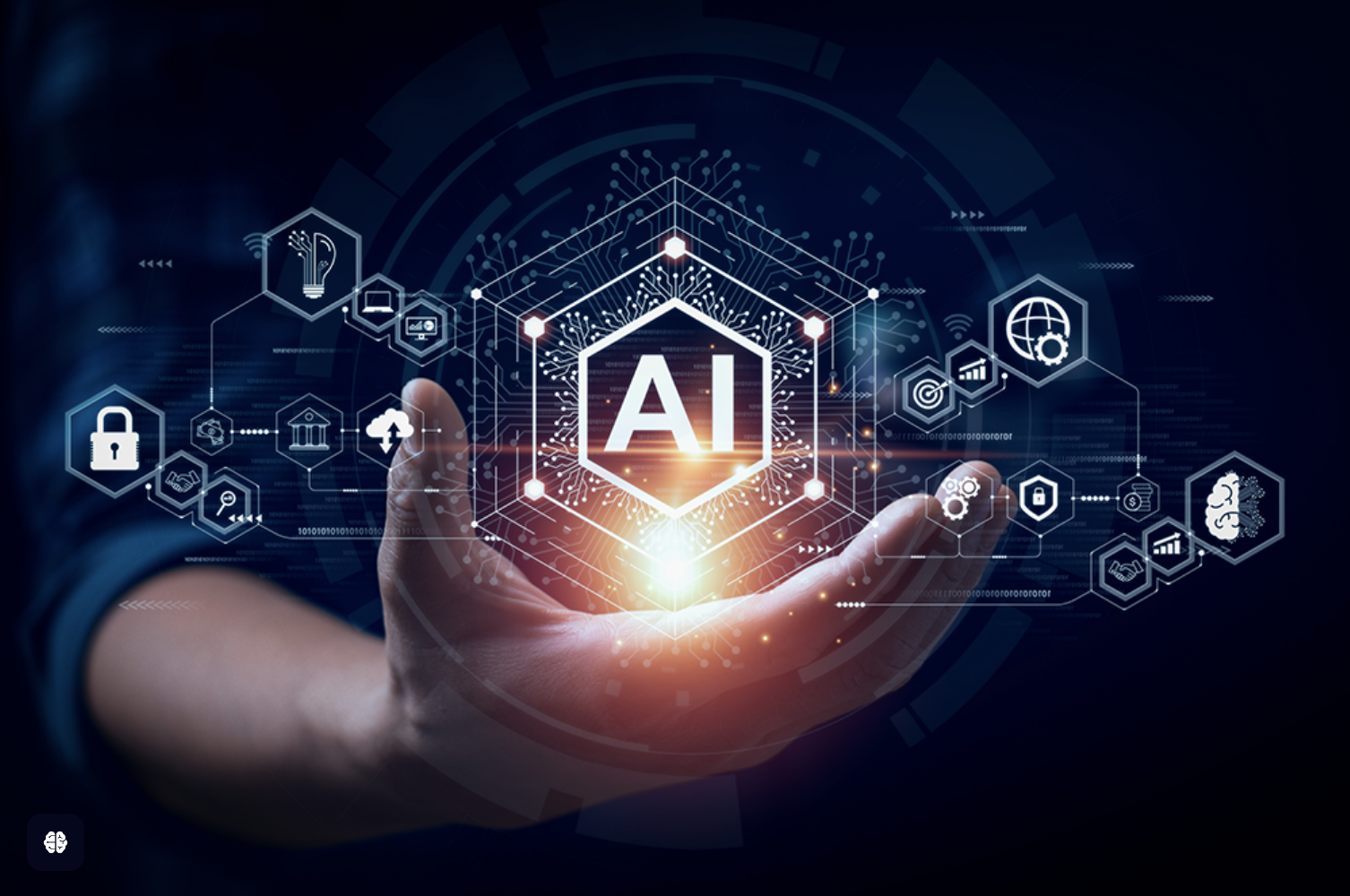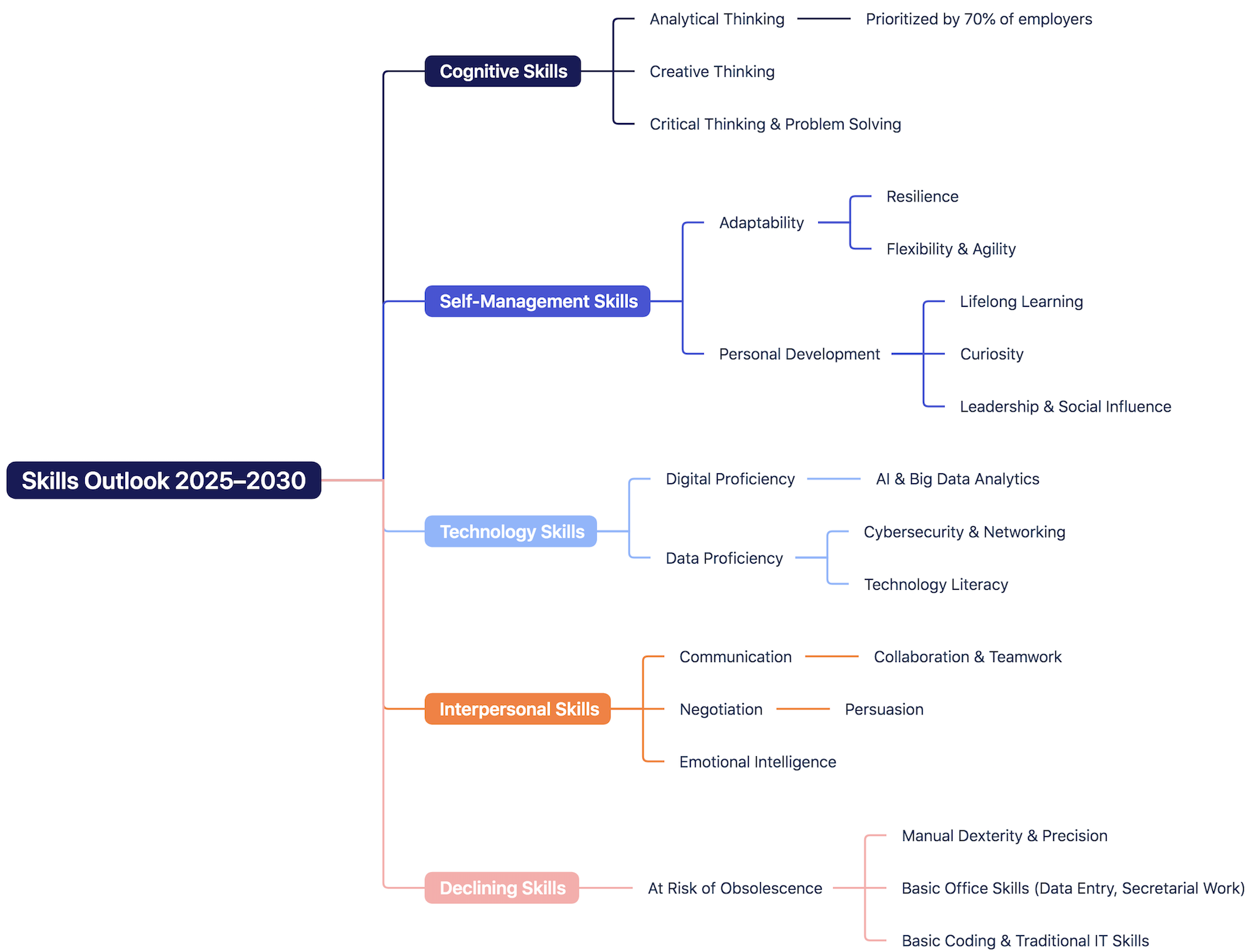The global labor market is undergoing an unprecedented transformation. According to the Future of Jobs Report 2025 by the World Economic Forum (WEF), from now until 2030, technology, climate change, demographic shifts, and economic instability will collectively create millions of new jobs — but will also wipe out many traditional roles. So, which careers will dominate the future? And which ones will soon become obsolete?
The Rise of Future-Proof Careers
The report reveals that digital technology, green transition, and healthcare will be the key sectors driving global job growth between 2025 and 2030.
1. High Technology and Artificial Intelligence (AI)
The explosive growth of AI, Big Data, and automation is ushering in a new era for the labor market.
Roles such as Big Data Specialists, AI and Machine Learning Specialists, and Software Developers will become highly sought-after “stars” of the workforce.

Moreover, demand for Cybersecurity Specialists is surging, as global businesses increasingly prioritize protecting their data from emerging cyber threats.
2. Green Transition and Sustainable Economy
The global race toward carbon neutrality is driving strong demand for talent in clean energy sectors. Positions like Renewable Energy Engineers, Environmental Engineers, and Autonomous & Electric Vehicle Specialists are set to flourish.
 Countries and corporations are urgently seeking green-skilled professionals to meet sustainability targets.
Countries and corporations are urgently seeking green-skilled professionals to meet sustainability targets.
3. Healthcare and Education: Pillars of the Future
With aging populations in developed economies, the demand for healthcare services is rising rapidly.
Careers such as Nursing Professionals and Social Work and Counselling Professionals will become foundational pillars.

Meanwhile, growing numbers of young workers in developing countries are fueling expansion in education, creating significant opportunities for University Teachers and Secondary Education Teachers.
Jobs That Are Disappearing
Alongside the rise of future careers, many familiar jobs are steadily vanishing — primarily due to the impact of AI, automation, and digitalization.
1. Administrative and Office Work
Data Entry Clerks, Administrative Assistants, Postal Clerks, and Cashiers are among the first to be affected.
AI technologies and automated systems are fully replacing manual data entry, information processing, and payment tasks.
2. Basic Financial Services
Bank Tellers, Claims Adjusters, and Traditional Accounting Clerks are also at high risk of being replaced, as financial services become increasingly digitized and automated.
3. Low-Skilled Manual Labor
Jobs such as Material-Recording Clerks, Printing Workers, and Transportation Attendants are gradually being replaced by robots and automated ticketing systems.
A New Labor Market Is Emerging
According to WEF:
- 170 million new jobs will be created by 2030.
- 92 million existing jobs will be lost.
- Roughly 39% of current workforce skills will become obsolete.
If workers fail to upgrade their skills, they risk being left behind.
Skills predicted to see the highest growth include:
✅ Analytical and creative thinking
✅ Adaptability and resilience
✅ Digital literacy, AI, Big Data, and cybersecurity skills
✅ Leadership, communication, and teamwork abilities
Meanwhile, manual labor, basic office skills, and traditional coding are expected to lose significant value as AI technologies take over.
Essential Skills You Must Start Building Today
In the powerful wave of transformation leading up to 2030, preparing the right skills is no longer optional — it’s essential for survival.
Here are the critical skills you should start developing today:

Final Thoughts: Change or Be Left Behind
The world of work is changing faster than ever before.
To seize future opportunities and avoid being left behind, every individual must:
- Continuously learn and update their skills.
- Focus on developing uniquely human strengths like creativity, leadership, and relationship management.
- Adapt to shifts in industry landscapes and technological trends.
Only those who dare to transform and step boldly into the future will thrive in the new era.
Reference:
Future of Jobs Report 2025 – World Economic Forum